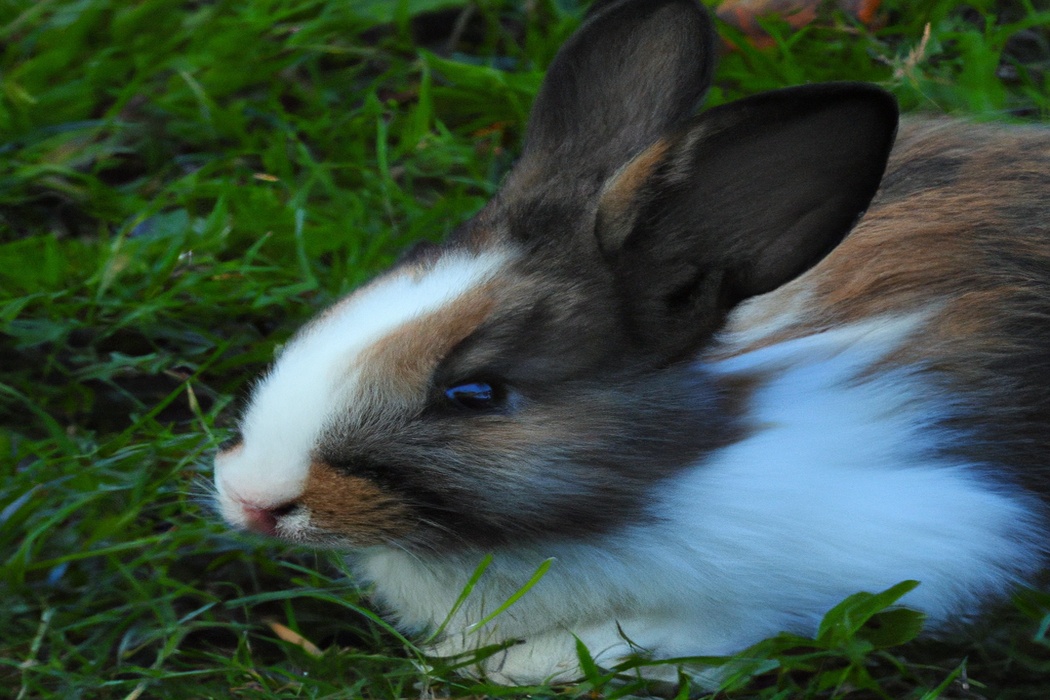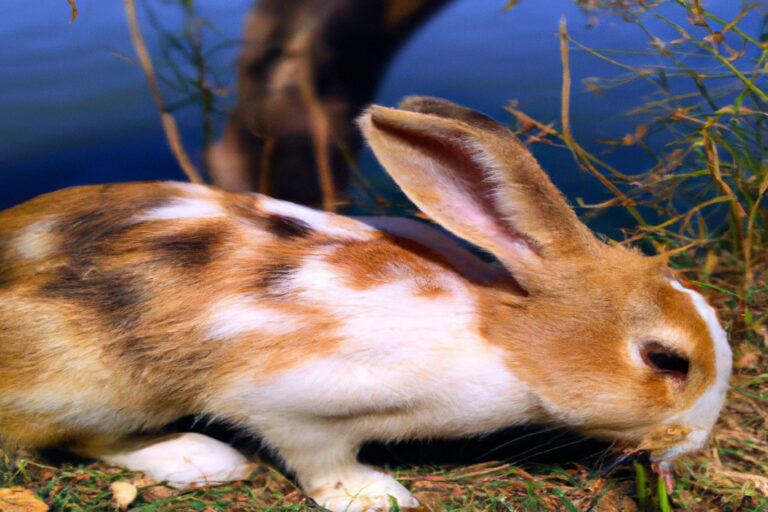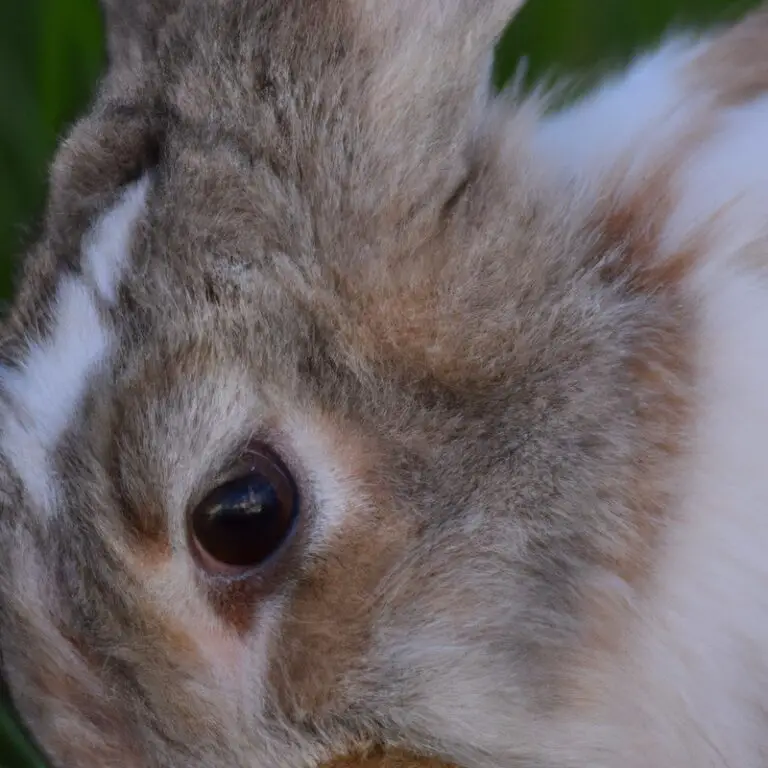Why Are My Rabbits Ears Hot? The Striking Phenomenon Explained!
Key Takeaways:
- Hot ears in rabbits may indicate a possible infection or fever.
- Rabbit’s ears have a unique ability to regulate body temperature.
- Monitoring your rabbit’s overall health is crucial when their ears feel hot.
- Seek veterinary attention if your rabbit’s hot ears are accompanied by other symptoms.
Are you a rabbit owner who’s noticed that your furry friend’s ears feel unusually warm? Well, you’re not alone! Many rabbit owners have wondered why their bunnies’ ears seem to radiate heat.
But fear not, because I’m here to shed some light on this peculiar phenomenon.
In this article, we’ll explore the fascinating world of rabbit body temperature and discover why those adorable floppy ears feel so hot. We’ll also delve into the various factors that can affect the temperature of a rabbit’s ears and discuss what it could mean if they’re hotter than usual.
So, let’s jump right in and uncover the secrets behind your rabbit’s toasty ears!
| Possible Reasons |
| Rabbit may be experiencing an infection or inflammation in the ears. |
| Rabbit may be feeling stressed or anxious. |
| Rabbit may have a fever due to an underlying illness or infection. |
| Rabbit may have sunburned ears from prolonged exposure to direct sunlight. |
| Rabbit may have been exposed to a hot or warm environment. |
| Rabbit may be experiencing hormonal changes or reproductive issues. |
| Rabbit may have a health condition that causes increased blood flow to the ears. |
Understanding Rabbit’s Body Temperature
Understanding a rabbit’s body temperature is essential for their overall health and well-being.
Why Rabbit’s Ears Feel Hot
Rabbit’s ears feel hot because they have a lot of blood vessels close to the surface. This is their way of regulating body temperature.
When they’re hot, the blood vessels dilate, allowing more blood to flow to the surface of the ears, where it can cool down.
Conversely, when they’re cold, the blood vessels constrict to keep more warmth inside the body. So, it’s completely normal for a rabbit’s ears to feel warm to the touch.
Factors Affecting Rabbit’s Ear Temperature
The temperature of a rabbit’s ears can be influenced by several factors. One important factor is their overall body temperature, as the ears act as a way for rabbits to regulate their body heat.
Additionally, the environment plays a role in their ear temperature, as rabbits’ ears can become warmer in hotter weather or when they are feeling stressed.
Finally, the level of physical activity or excitement can also impact a rabbit’s ear temperature.
Common Reasons for Hot Rabbit Ears
Rabbit ears can get hot for a few common reasons, such as heat regulation, insulation, blood vessel dilation, or if the rabbit has a fever.
Normal Body Temperature of Rabbits
The normal body temperature of rabbits is generally around 38.5 to 40 degrees Celsius (101.3 to 104 degrees Fahrenheit).
This temperature range is considered normal for rabbits and is important for their overall health and well-being.
It’s essential to monitor your rabbit’s body temperature regularly and seek veterinary care if you notice any significant deviations from this range.
Remember to provide a comfortable and stress-free environment for your furry friend to help maintain their normal body temperature.
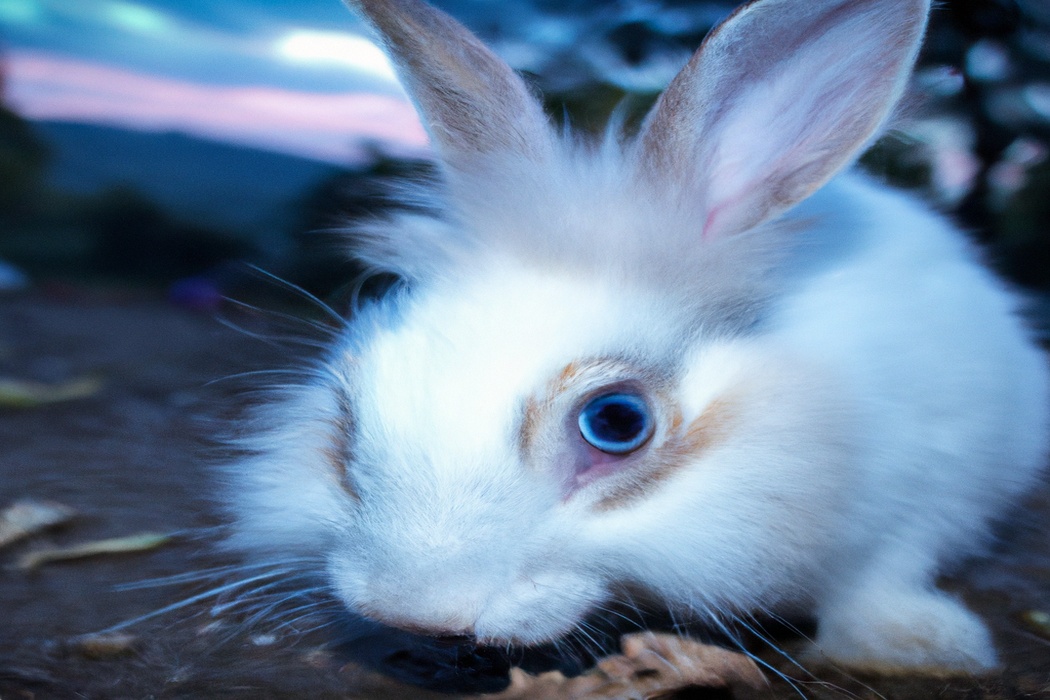
Rabbit Ears as a Heat Regulation Mechanism
Rabbit ears are an amazing heat regulation mechanism. They contain a complex network of blood vessels close to the surface, helping rabbits regulate their body temperature.
When a rabbit is hot, blood vessels in the ears dilate, increasing blood flow and allowing heat to be released.
Conversely, when a rabbit is cold, blood vessels constrict, reducing blood flow and conserving heat. This remarkable adaptation helps rabbits stay comfortable in various environments.
Rabbit’s Ears as Insulators
Rabbit’s ears are incredible insulators.
The large blood vessels close to the surface of their ears help regulate their body temperature.
When it’s hot, blood vessels in the ears dilate, allowing heat to escape and cool the rabbit down, acting like a radiator.
In cold weather, the blood vessels constrict, preventing heat loss and keeping the rabbit warm.
This adaptation is essential for the survival of these furry creatures in various climates.
Rabbit Ears and Blood Vessels
Rabbit ears have an extensive network of blood vessels. This helps regulate their body temperature.
When a rabbit’s ears feel hot to the touch, it’s a sign that their blood vessels in the ears are dilating.
This allows for heat dissipation, which helps keep the rabbit cool. The blood vessels expand when the rabbit’s body temperature rises, increasing blood flow to the ears and promoting heat loss through the large surface area of the ears.
So, hot rabbit ears are actually a normal physiological response to maintain body temperature.
Excessive Heat or Fever
Excessive heat or fever in rabbits can be a cause for concern. It is important to monitor your rabbit’s body temperature regularly.
If you notice that their ears feel unusually hot to the touch and they are displaying other signs of illness such as lethargy or loss of appetite, it could indicate a fever.
Fevers in rabbits can be caused by various factors, such as infections, underlying health conditions, or environmental stress. It is best to consult with a veterinarian to determine the underlying cause and appropriate treatment.
Signs of Distress or Illness in Rabbits
Look out for signs of distress or illness in your rabbit, such as excessive lethargy, loss of appetite, abnormal stool, or discharge from the eyes or nose.
If you notice any of these symptoms, it’s important to seek veterinarian advice as soon as possible.
Checking for Other Symptoms
Checking for other symptoms is an important part of monitoring your rabbit’s health.
Look out for any changes in behavior, such as changes in appetite or water consumption, unusual levels of lethargy or restlessness, or signs of pain or discomfort.
Check your rabbit’s eyes, nose, and mouth for any discharge or swelling.
Pay attention to their breathing, making sure it is not labored or rapid.
Keep an eye on their fur and skin for any abnormalities, such as hair loss, redness, or itching.
It’s also important to regularly check your rabbit’s droppings for any changes in color, consistency, or frequency.
If you notice any unusual symptoms, it’s best to consult with a veterinarian for further evaluation.
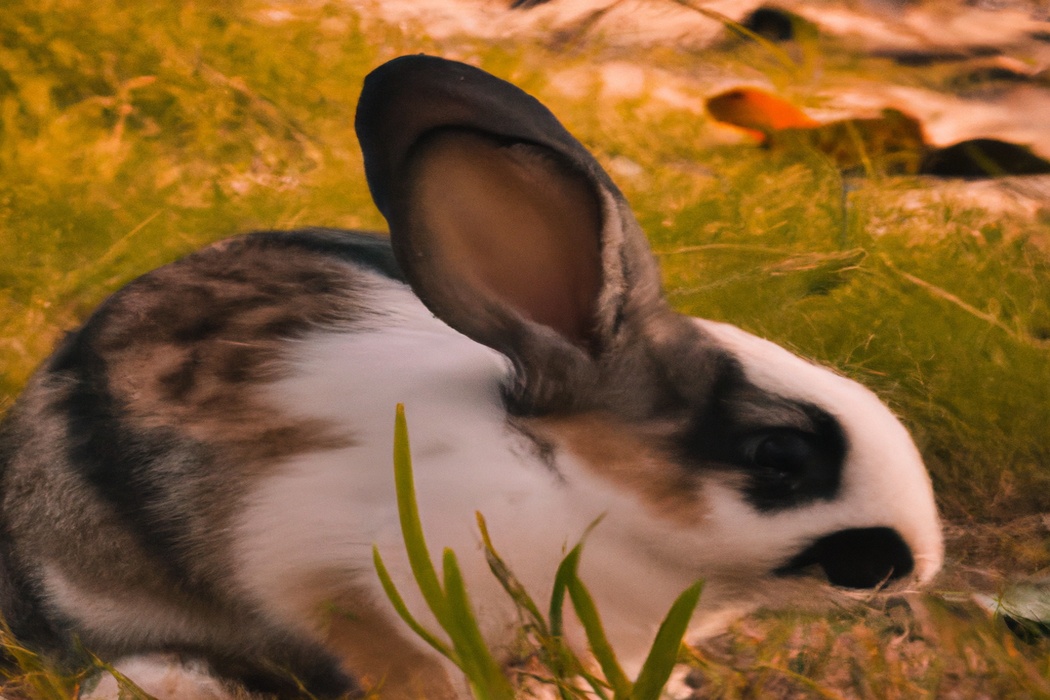
Seeking Veterinarian Advice
If you notice any signs of distress or illness in your rabbit, it’s important to seek veterinarian advice as soon as possible.
A veterinarian who specializes in small animals, including rabbits, can provide the expertise and support needed to properly diagnose and treat your furry friend.
They will be able to assess your rabbit’s symptoms, perform any necessary tests or examinations, and recommend appropriate treatment options.
Remember, timely veterinary care is crucial for ensuring the health and well-being of your beloved rabbit.
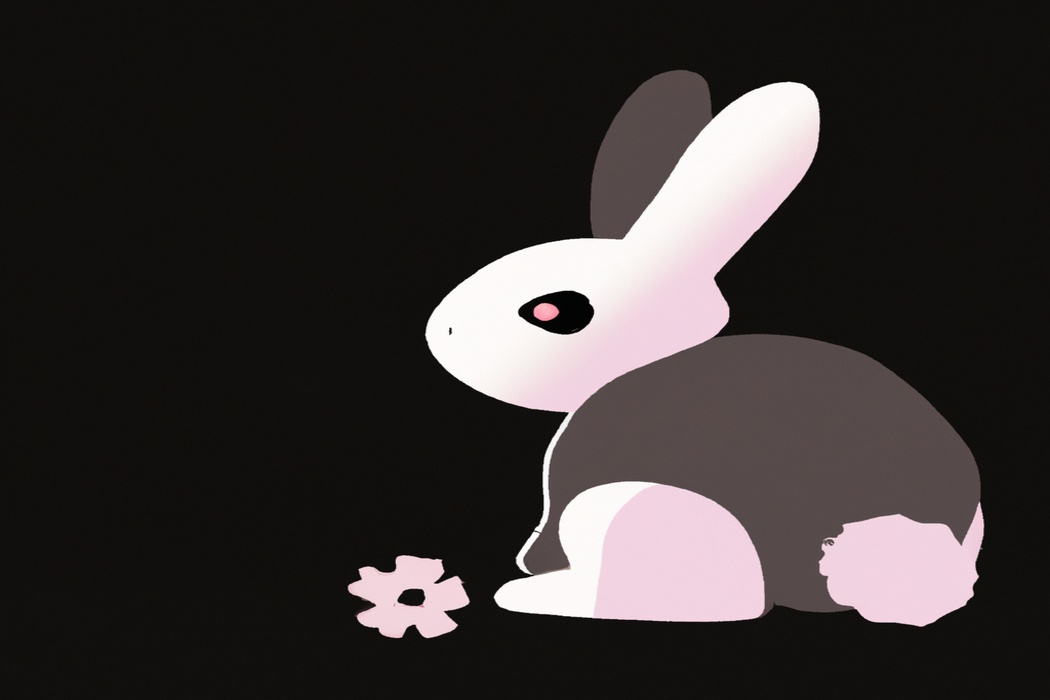
How to Keep Rabbits Comfortable
Keep your rabbits comfortable by providing a suitable environment and ensuring they have adequate water, shade, and protection from heat stress.
Providing a Suitable Environment
To provide a suitable environment for your rabbits, there are a few key things to keep in mind.
Make sure they have enough space to move around and stretch their legs.
Provide them with a comfortable and clean living area, and make sure it is well-ventilated.
Offer them plenty of fresh water and a balanced diet of hay, vegetables, and pellets.
Lastly, pay attention to their social needs by giving them opportunities to interact with other rabbits or providing them with plenty of toys and enrichment activities.
Providing Adequate Water and Shade
To keep your rabbits comfortable, it’s important to provide them with adequate water and shade. Rabbits need plenty of fresh water to stay hydrated, so make sure to refill their water bowls or bottles regularly.
Additionally, rabbits can overheat easily, so they need a shaded area to retreat to during hot days.
You can create shade by using umbrellas, tarps, or providing a shade structure in their enclosure. Keeping their water and shade needs in mind will help keep your rabbits happy and healthy.
Managing Heat Stress in Rabbits
Managing heat stress in rabbits is crucial for their wellbeing. To prevent heat-related issues, make sure to provide adequate shade and ventilation in their living space.
Avoid placing the rabbits’ enclosure in direct sunlight or near heat sources.
Additionally, ensure they always have access to fresh, cool water and monitor their water intake to prevent dehydration. If necessary, you can use cooling techniques such as misting or providing ice packs for the rabbits to keep them comfortable.
Regularly check their ears, as hot ears can be a sign of heat stress.
Frequently Asked Questions
Is it normal for a rabbit’s ears to be warm?
Yes, it is normal for a rabbit’s ears to be warm. Rabbits have a high blood supply to their ears, which helps regulate their body temperature.
The warm ears are a result of this increased blood flow.
It’s a natural and healthy characteristic of rabbits. So, don’t worry if you feel your rabbit’s ears are warm – it’s perfectly normal for them.
How can I cool down my rabbit’s ears?
To cool down your rabbit’s ears, you can try a few simple techniques.
Start by providing a cool and shady area for your rabbit to rest in.
Placing a damp towel or providing a fan near your rabbit can also help to lower their body temperature.
Remember to avoid using ice packs directly on their ears as this can cause discomfort.
Keeping your rabbit hydrated is key, so make sure they always have access to fresh water.
Additionally, grooming your rabbit regularly can help remove excess fur and help with heat regulation.
When should I be concerned about my rabbit’s hot ears?
If you notice that your rabbit’s ears are hot, it could be a sign of concern.
Rabbits regulate their body temperature through their ears, so hot ears may indicate overheating or illness.
Take note if your rabbit is also displaying other symptoms such as lethargy, loss of appetite, or difficulty breathing.
If you’re unsure, it’s always better to consult a veterinarian who can assess your rabbit’s condition and provide appropriate care.
Final Verdict
Understanding why your rabbit’s ears feel hot is essential for their overall well-being.
Rabbit ears serve as a heat regulation mechanism, helping them stay cool in hot temperatures.
By dilating blood vessels close to the surface, they release excess body heat.
However, excessively hot ears or a fever can indicate distress or illness.
Keeping your rabbit comfortable involves providing a suitable environment, adequate water, shade, and managing heat stress.
If you notice other symptoms or persistent hot ears, consult a veterinarian for further advice.
Remember, ensuring your rabbit’s comfort is crucial for their health and happiness.

